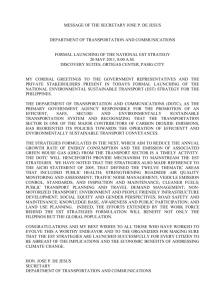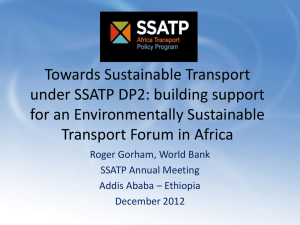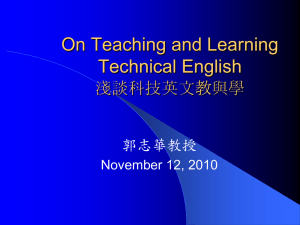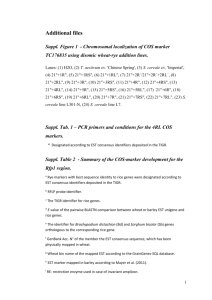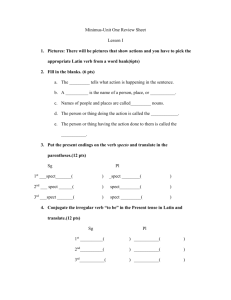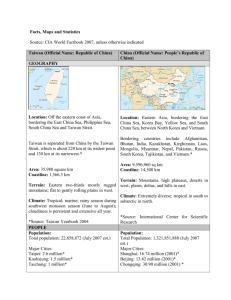City Reporting Guideline
advertisement
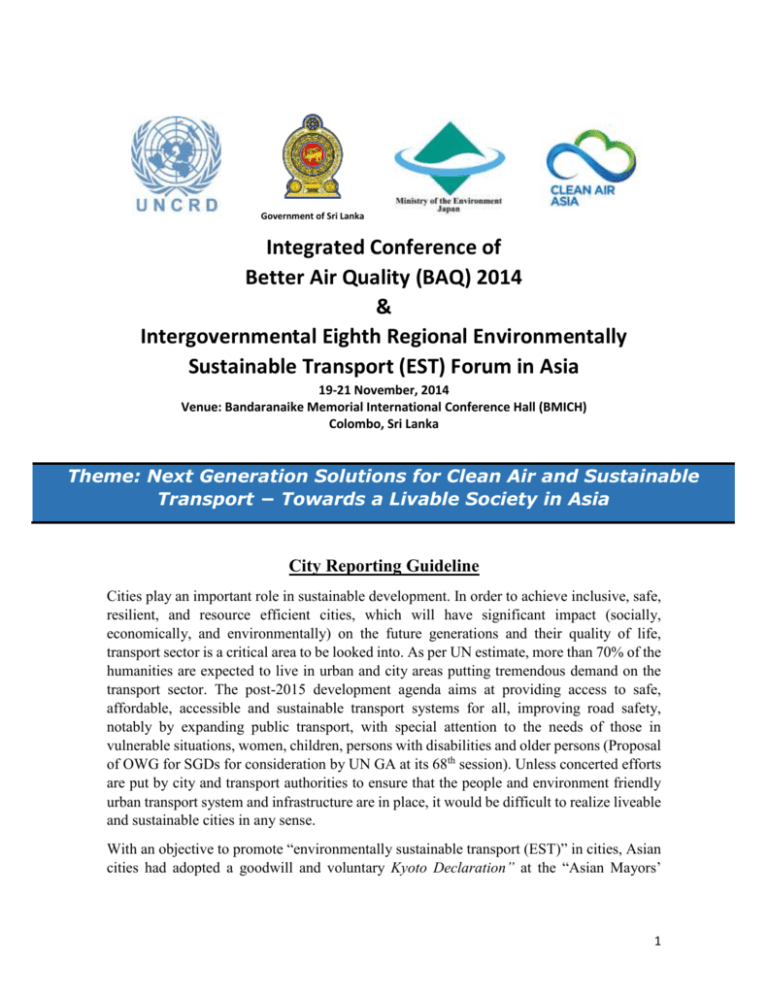
Government of Sri Lanka Integrated Conference of Better Air Quality (BAQ) 2014 & Intergovernmental Eighth Regional Environmentally Sustainable Transport (EST) Forum in Asia 19-21 November, 2014 Venue: Bandaranaike Memorial International Conference Hall (BMICH) Colombo, Sri Lanka Theme: Next Generation Solutions for Clean Air and Sustainable Transport − Towards a Livable Society in Asia City Reporting Guideline Cities play an important role in sustainable development. In order to achieve inclusive, safe, resilient, and resource efficient cities, which will have significant impact (socially, economically, and environmentally) on the future generations and their quality of life, transport sector is a critical area to be looked into. As per UN estimate, more than 70% of the humanities are expected to live in urban and city areas putting tremendous demand on the transport sector. The post-2015 development agenda aims at providing access to safe, affordable, accessible and sustainable transport systems for all, improving road safety, notably by expanding public transport, with special attention to the needs of those in vulnerable situations, women, children, persons with disabilities and older persons (Proposal of OWG for SGDs for consideration by UN GA at its 68th session). Unless concerted efforts are put by city and transport authorities to ensure that the people and environment friendly urban transport system and infrastructure are in place, it would be difficult to realize liveable and sustainable cities in any sense. With an objective to promote “environmentally sustainable transport (EST)” in cities, Asian cities had adopted a goodwill and voluntary Kyoto Declaration” at the “Asian Mayors’ 1 Policy Dialogue for the Promotion of Environmentally Sustainable Transport (EST) in Cities” held in Kyoto, Japan in 2007 (note: 44 Asian Cities have so far signed the Kyoto Declaration on EST). http://www.uncrd.or.jp/index.php?page=view&type=13&nr=55&menu=232 Further demonstrating the renewed interest and commitment of Asian countries towards realizing a promising decade of sustainable actions and measures for achieving safe, secure, affordable, efficient, and people and environment-friendly transport in rapidly urbanizing Asia, the member countries of the Regional EST Forum in Asia had agreed on a goodwill and voluntary “Bangkok Declaration for 2020 – Sustainable Transport Goals for 2010-2020” at the Fifth Regional EST Forum held in Bangkok, Thailand, in 2010. It was the first time that Asian governments and other transport stakeholders endorsed a joint declaration incorporating a comprehensive set of twenty EST goals under the three strategic approachesAvoid, Shift and Improve - within the time frame of 2010-2020. http://www.uncrd.or.jp/content/documents/201008_Bangkok-Declaration.pdf Subsequently, at the Seventh Regional EST Forum held in Bali in 2013, the participating countries adopted the “Bali Declaration on Vision Three Zeros- Zero Congestion, Zero Pollution and Zero Accidents towards Next Generation Transport Systems in Asia” reinforcing the Bangkok 2020 Declaration (2010-2020) and emphasizing zero tolerance towards congestion, pollution and road accidents in the transport policy, planning and development. The Vision Three Zeros calls for a paradigm shift in thinking on the role of motorization and mobility in realizing sustainable development in Asia over the next decade (2010-2020). The main objective of the City Reporting is to share among international community the progress, achievements, major initiatives and best practices, including various challenges faced, in the areas of sustainable transport. This would help development agencies, donors, including development banks, in assessing the sustainable transport needs and challenges of cities to better devise their existing as well as future capacity building programs and operations in the field of sustainable transport. We would appreciate if a consolidated city report (maximum 10 pages) could kindly be prepared and submitted to the Secretariat of the Regional EST Forum in Asia (est@uncrd.or.jp) by focusing on the following aspects: Q-1 Q-2. What are the major challenges and constraints faced by your city in implementing sustainable transport policies and measures? What is the mode share (%) in public transportation system? What action you have taken to promote public transport system such as BRT, MRT and LRT in your city? 2 Q-3 Is NMT (non-motorized transport) an integral part of your transport policy, planning, and development? What action you have taken to promote NMT (safe bicycle and pedestrian facilities) in your cities? Q-4 Is your city implementing or in a process of developing any transport Master Plan? If so how far the transport Master Plan is people and environmentfriendly, with special attention to the needs of those in vulnerable situations, women, children, persons with disabilities and older persons? Q-5 What are the current parking policies and traffic restraint measures of your city? Q-6 How does your city implement road safety policies and measures? Is there any improvement in traffic safety since Kyoto Declaration (2007)? Could you provide the number of traffic accidents and fatalities for last 7 years (2007-2014)? Timeline for submission: 1 October 2014 Thank you very much for your kind cooperation. 3
